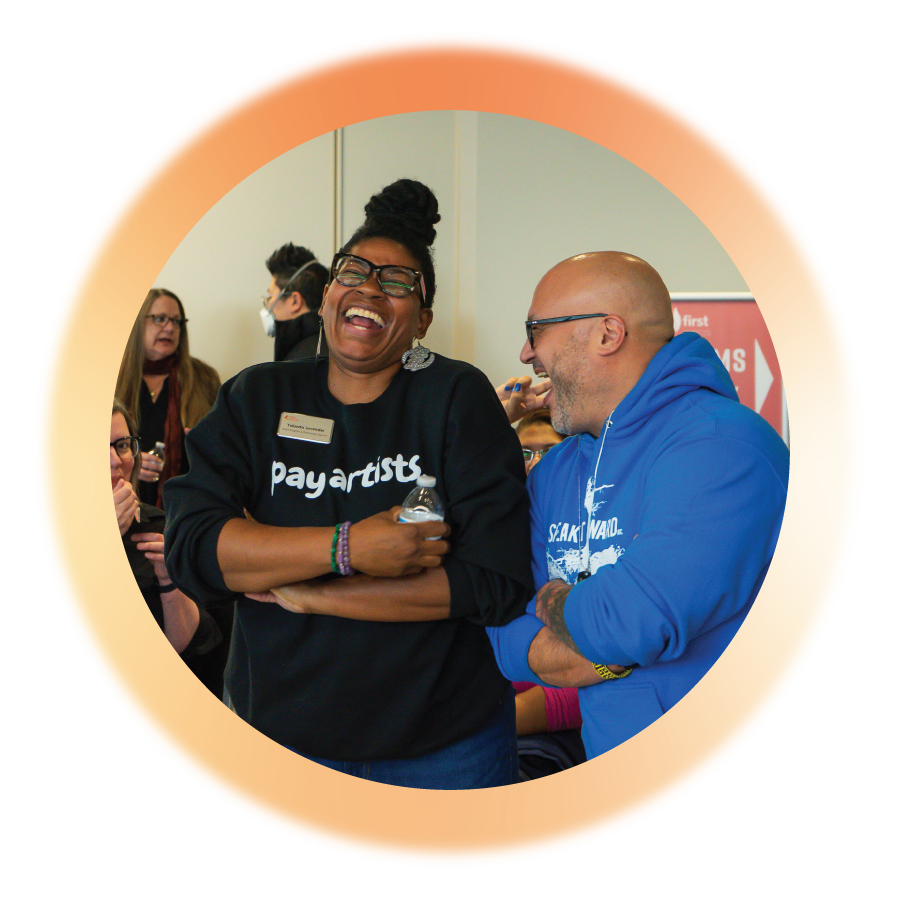Community Feature
Prioritizing Community Voices Internally and with Nonprofit Partners

The Stryker Johnston Foundation (SJF) strives to advance anti-racist and anti-oppressive practices in its organization and grantmaking with its nonprofit partners in Kalamazoo. SJF focuses on supporting organizations led by and serving Black people, people of color and other historically under-resourced and underserved communities.
SJF has been intentional about being explicit about whom it prioritizes as a foundation that focuses specifically on eliminating intergenerational poverty and disrupting and dismantling the systems and root causes that lead to those who have been disproportionately affected.
“There was really no way to do the work from a place of intention without naming those groups and doing the internal work as well,” Yolonda Lavender, Grant Program & Partnerships director at SJF said.
Through its anti-racism and anti-oppression work, SJF has been deliberate in centering the voices of those with lived experience, which has evolved its partnerships with community and grant partners.
Lavender joined SJF in 2019 as the first Black woman staff member. She shared that there needed to be intention around the work environment, and since more Black people and people of color joined the foundation, creating a safe space was essential.
“The individuals who are on the front lines are being representative of the people who are receiving funding. We’re not disconnected from them or unaware of what their lived experiences are which can only happen if you’re prioritizing anti-racism work,” Lavender said.
Lavender shared that the foundation’s processes and practices are directly informed by its grant partners and community members in Kalamazoo.

Yolonda Lavender
Grant Program & Partnerships Director
Stryker Johnston Foundation
“I’m grateful to be informed by community. There are moments when they ask important questions that are necessary and show courage coming from somebody who is receiving funding from the foundation. That’s the result you get when partnerships and relationships are prioritized,” Lavender said.
SJF prioritizes equity and trust and seeks to build relationships with its grant partners and work from a place of trust and respect.
Through her experience as a nonprofit leader, Lavender shared that she wanted to use those experiences to inform how SJF showed up in its work with its nonprofit partners.
“It’s about really centering relationships with our grant partners and moving as far away as possible from this more traditional way of grantmaking which is how people are able to trust because you’re more authentic. We continue to prioritize being transparent and authentic with our grant partners and making sure we’re centering openness and honesty. That has taken things to a new level in terms of what we’ve been able to do with our partnerships,” Lavender said.
The foundation has also adjusted its grantmaking request process, no longer requiring nonprofits to submit a grant report and moved to a system of providing grant reflections for its partners.
“We made that change for this reflection opportunity for our grant partners, but it has also had value to the foundation. We have the benefit of this data and information on how the process went for them and we’re able to see how we can become a better partner,” Lavender said.
SJF views its nonprofit partners as a reciprocal relationship rather than only a transactional one, which Lavender shared requires more time.
“We’re not only in conversation with our grant partners when they request funding, we want to be in continued conversation,” Lavender said.
Lavender shared that ahead of the 2024 presidential election, SJF was in early conversations with its nonprofit partners to prepare for a changed policy landscape. Now that the landscape has shifted and impacted the charitable sector, these early conversations prepared SJF to effectively support its nonprofit partners.
“This has changed the way that we navigate and construct our grant rounds; we’ve now opened it up so that as the need arises for the community, we can respond instead of asking our partners to come to us during a specific time frame,” Lavender said.
Lavender shared that although many groups have experienced this kind of oppression before, now that it’s exacerbated on a different level, this time requires philanthropy to be courageous and double down on our commitments to the communities we walk alongside.
“The sector knows the difference between what is right and wrong but having the courage to speak up and then move to action is a different thing. It’s important to focus on the idea of collectivism, even if these impacts aren’t hitting you right now, there are going to be residual effects, and we don’t have the luxury of it not being important right now,” Lavender said.
Want more?
Watch Making the Case for Trust-Based Philanthropy: A CMF Equity Signature Series Workshop.
Connect with CMF’s Philanthropic Practice Expert in Residence, Jen Heymoss.